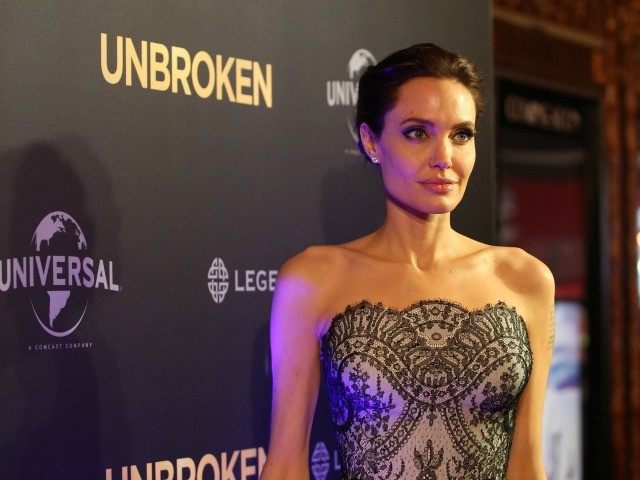Actress and director Angelina Jolie revealed Tuesday she had her ovaries and fallopian tubes removed in order to lower her odds of developing cancer.
Writing of her experience in The New York Times, Jolie, who is only 39 and already underwent a preventive double mastectomy in 2013, says: “I wanted other women at risk to know about the options. I promised to follow up with any information that could be useful, including about my next preventive surgery, the removal of my ovaries and fallopian tubes.”
Jolie says she had an “estimated 87 percent risk of breast cancer and a 50 percent risk of ovarian cancer” and that she lost both her mother and grandmother to cancer.
She had already planned on going in for surgery eventually, but her doctor called two weeks ago with results from a blood test, which showed there were “inflammatory markers that are elevated, and taken together they could be a sign of early cancer.”
After a negative ultrasound, the actress said:
I was relieved that if it was cancer, it was most likely in the early stages. If it was somewhere else in my body, I would know in five days. I passed those five days in a haze, attending my children’s soccer game, and working to stay calm and focused.
The day of the results came. The PET/CT scan looked clear, and the tumor test was negative. I was full of happiness, although the radioactive tracer meant I couldn’t hug my children. There was still a chance of early stage cancer, but that was minor compared with a full-blown tumor. To my relief, I still had the option of removing my ovaries and fallopian tubes and I chose to do it.
Her decision to go public with the news is aligned with her desire to help “other women at risk to know about the options.”
I did not do this solely because I carry the BRCA1 gene mutation, and I want other women to hear this. A positive BRCA test does not mean a leap to surgery. I have spoken to many doctors, surgeons and naturopaths. There are other options. Some women take birth control pills or rely on alternative medicines combined with frequent checks. There is more than one way to deal with any health issue. The most important thing is to learn about the options and choose what is right for you personally.
“It is not easy to make these decisions,” she finished. “But it is possible to take control and tackle head-on any health issue. You can seek advice, learn about the options and make choices that are right for you. Knowledge is power.”

COMMENTS
Please let us know if you're having issues with commenting.